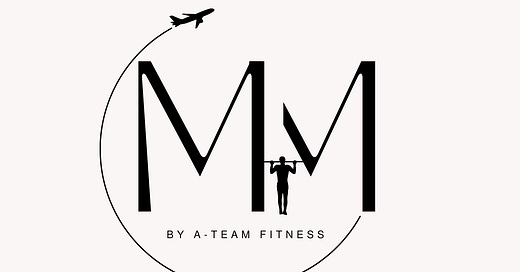Takeaway: The article highlights the importance of recognizing and addressing food anxiety, especially in social settings where dietary choices are often scrutinized. It emphasizes strategies like reframing negative self-talk, practicing self-compassion, and maintaining realistic nutrition goals to foster a healthier relationship with food.
Coping with Food Anxiety
Navigating anxiety, especially when it intertwines with food and social settings, is a journey many of us face, often silently.
It’s a complex dance of emotions, thoughts, and societal pressures that can leave us feeling isolated and misunderstood.
But you're not alone, and there are ways to move forward with grace and self-compassion, even in the midst of these struggles.
Understanding Anxiety Around Food and Social Situations
We've all been there: a social gathering with tables full of tempting foods, each bite seemingly under scrutiny, not just by others but by ourselves.
It’s easy to feel trapped between the desire to enjoy the moment and the fear of breaking away from our dietary goals.
This anxiety is more than just a fear of judgment; it’s a reflection of deeper societal expectations and personal battles we face daily.
For many, food is not merely sustenance; it's a reflection of identity, self-control, and sometimes, self-worth.
The societal narrative often equates our dietary choices with our moral character. This pressure can amplify in social settings where the spotlight feels like it's on our plates.
Strategies for Overcoming Negative Self-Talk
One of the most insidious aspects of food anxiety is the negative self-talk that often accompanies it. This internal dialogue can be relentless, whispering harsh criticisms and feeding our insecurities.
The first step to overcoming this is awareness.
Notice these thoughts as they arise, without judgment. Recognize that they are just thoughts, a subjective interpretation of events and not objective reality.
Reframing is a powerful tool here. Instead of succumbing to the harsh judgment of "I ruined my diet," try a more compassionate approach: "I made a choice that wasn’t part of my plan, but it doesn’t define me."
This shift from self-criticism to self-kindness can be transformative. It allows for the understanding that one meal doesn’t undo all your progress or worth.
Self-compassion is essential.
Imagine speaking to yourself as you would to a dear friend who is struggling. You wouldn’t berate them; you'd offer support and kindness.
Treat yourself with the same gentle care. Understand that setbacks are not failures but opportunities for learning and growth.
Staying on Track with Nutrition Goals
Balancing nutrition goals with a social life can feel like walking a tightrope.
Planning can help ease this tension.
Before attending social events, consider strategies like eating a small, healthy snack beforehand to curb intense hunger, allowing you to make more mindful choices.
Or consider looking at the menu ahead of time to prepare how you’ll order to stay within reasonable view of your daily goals.
No matter how well you plan, life will throw curve balls. This is why it’s crucial to set realistic goals and not fall into the perfection trap.
Perfection is a myth that often leads to self-sabotage.
Allow yourself the flexibility to enjoy life’s pleasures without guilt. Remember, food serves many roles, including a part of life’s joy. It’s not a constant test of willpower.
Understanding that one indulgent meal or day doesn’t define your journey is liberating. It’s about the overall pattern of your habits, not the occasional deviation.
This perspective shift can help alleviate the guilt often associated with dietary slip-ups, fostering a healthier relationship with food and self.
Actionable Steps
"Just defining the problem often alleviates most of our anxiety because now we have something to focus on."
Define the problem:
Seek to understand the root of your anxiety—whether it’s fear of judgment, self-imposed expectations, or past experiences. By clearly identifying the source, you can start addressing the real issues rather than just the symptoms.
Track Your Food Choices
Writing down your food choices gives you better opportunities to reflect on why you’re choosing certain foods. It also gives you a record to look back on to notice trends and areas of improvement.
Food logs can also be a great tool to help plan ahead for social events or other potentially challenging environments.
Keep in mind, these food logs are merely that: records of what you’ve done or plan to do. They are not meant as a tool for judgement about you or your choices.
Build a support system:
Surround yourself with people who understand your goals and can provide encouragement without judgment. Sharing your experiences with others can reduce feelings of isolation and provide new perspectives on your struggles.
Being around others working on similar goals can reduce many of the social pressures that make lifestyle change so hard.
Evaluate your behavior and adjustment the plan as needed:
Regularly take time to reflect on your experiences and adjust your strategies accordingly. This practice of self-assessment helps you stay aligned with your goals and allows for personal growth.
Evaluating your behavior allows you to leverage challenging moments as learning opportunities for tomorrow’s success.
Celebrating Growth
In recognizing and confronting your food anxiety, it's important to accept that feeling vulnerable is a natural part of the process. You're not navigating this path alone; others share similar struggles.
Each small step toward self-awareness is a meaningful stride toward a healthier relationships with food.
Celebrate your progress, however minor it may seem, and understand that growth can arise from the least expected moments—even those that feel the most like failure.
P.S. Thanks for reading. If you’re struggling to overcome food anxiety and see progress toward your health goals, click here to book a complimentary discovery call with a member of our team.




